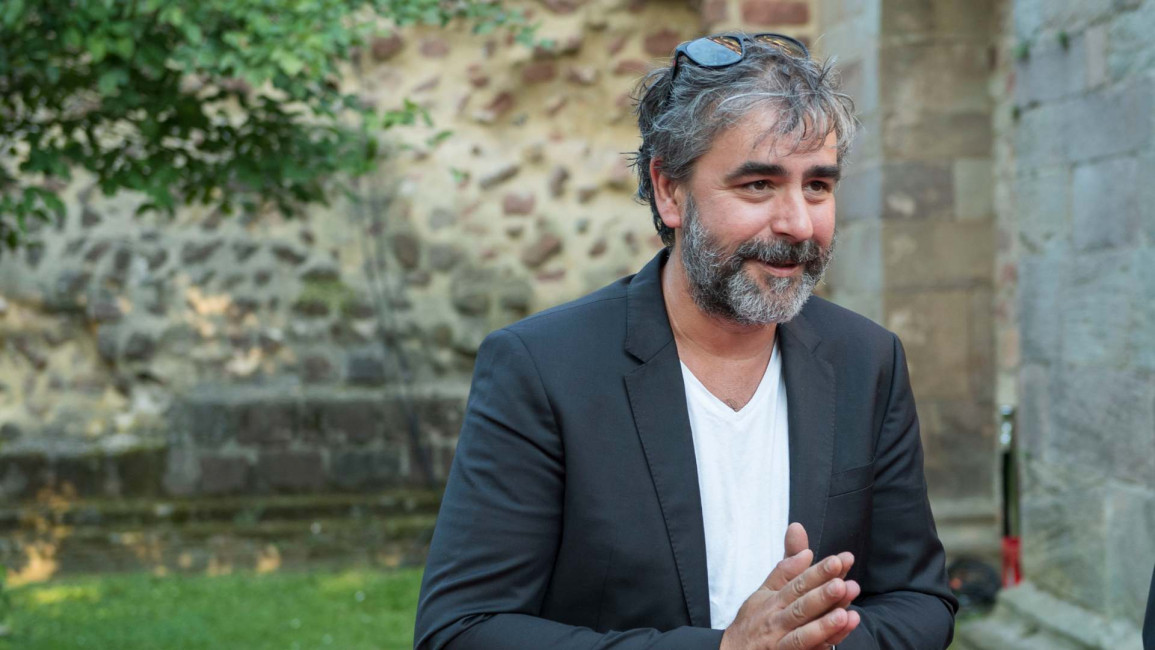European court says Turkey violated journalist's rights
The European Court of Human Rights ruled Tuesday that Turkey violated the rights of German-Turkish journalist Deniz Yucel, who was jailed in Turkey for a year and later convicted of engaging in propaganda in favor of Kurdish rebels.
The Strasbourg, France-based court ruled that the pre-trial detention of Deniz — a correspondent for Germany’s Die Welt newspaper — amounted to a violation of his right to liberty and security as well as his right to freedom of expression. It also ruled that the journalist had not been adequately compensated for his unlawful detention.
"The Court ruled that Mr. Yucel had been placed and retained in pre-trial detention in the absence of plausible reasons to suspect him of committing a criminal offense," a court statement said.
Yucel was arrested in Istanbul as part of a vast government clampdown in the wake of the July 2016 coup attempt, and charged with propaganda on behalf terror groups, including the outlawed Kurdistan Workers’ Party, or PKK. He was held in pretrial detention for a year and returned to Germany after his release.
In 2020, a court in Istanbul convicted Yucel of the charge of engaging in terrorist propaganda and sentenced him in absentia to more than two years and nine months in prison. A year earlier, the Constitutional Court, Turkey’s highest court, said Yucel’s year-long detention violated his rights.
His case led to a diplomatic crisis with Germany, which accused Turkey of conducting "arbitrary arrests" of German citizens suspected of links to the PKK or the network led by U.S.-based cleric Fethullah Gulen.
"That the judges in Strasbourg have established that my right to freedom and safety and my right to freedom of opinion were violated is satisfying," Yucel told Die Welt.
"But it is disappointing that the judges didn’t want to find a violation of the ban on torture — despite nine months in solitary confinement and despite the psychological and physical violence I was sometimes subjected to at (Istanbul's) Silivri No. 9 high-security prison."
Yucel added that he was also disappointed that the court didn’t find that the proceedings against him were politically motivated.
"I suspect that even (President) Recep Tayyip Erdogan didn’t expect that," he said, accusing the Turkish leader of "repeated public attacks" and of making him an object of political negotiations. He also said prosecutors made him wait a year for an indictment on Erdogan’s "personal orders."
Yucel was referring to statements by Erdogan in 2018 who called him a “spy” and a “terrorist.”
"Even the circumstances of my release — there is not a fiber of these proceedings that was not politically motivated," Yucel said.
Both Turkey and Yucel have three months within which they can ask for the case to be referred to court’s Grand Chamber for a final ruling, the court said.
Human rights groups say Turkey is among the world’s top jailers of journalists. The Turkish government says the detentions are not based on the journalists’ work and that most stand accused of terror-related offenses.


![President Pezeshkian has denounced Israel's attacks on Lebanon [Getty]](/sites/default/files/styles/image_684x385/public/2173482924.jpeg?h=a5f2f23a&itok=q3evVtko)



 Follow the Middle East's top stories in English at The New Arab on Google News
Follow the Middle East's top stories in English at The New Arab on Google News


